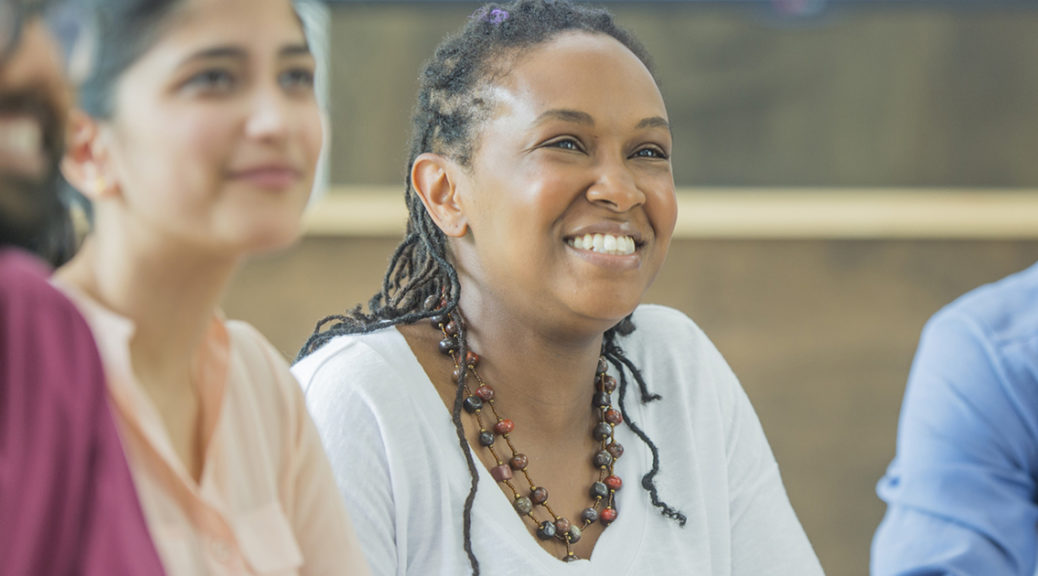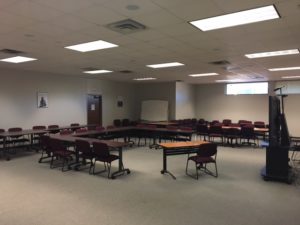Why Foster Parent Training is Critical to Helping Children in Care

Morgan Emmert is the Training Coordinator for KVC Nebraska. She is often asked details about the training class to become a foster or adoptive parent. The class is called TIPS-MAPP: Trauma-Informed Partnering for Safety and Permanence-Model Approach to Partnerships in Parenting. This series of foster parent training classes are required training for earning a license to care for children and teens. The goal is to strengthen parenting skills and teach understanding about the effects of trauma. Read our Q&A with Morgan below to learn more about the training offered at KVC.
Q: Can you give a brief overview of the foster parent training?
Morgan: Yes, we offer training classes for foster, kinship and adoptive parents that really help to strengthen their role as parents. The classes last around 10 weeks and really prepare the parents for helping the children through issues of trauma and understanding of foster care. We address:
- The types of child abuse and neglect the children may have experienced and how to help them heal
- Placement needs of foster parents and foster youth
- Attachment and bonding
- How the brain is built and how trauma affects the development of a child’s brain
- Co-parenting with biological parents to support safe reunification
- Cultural needs
These topics are so important for caregivers to learn because they might often care for youth who need support in a variety of areas. With the education from these classes, parents are able to understand what children in foster care will need in order to be healthy and will be prepared for welcoming youth into their home.
Q: What are the benefits of the classes?
Morgan: Not only are parents learning, but they are able to build a support group of other foster parents. Our classes often have activities or small group discussions included in them. We try to have more engaging training class time, rather than holding lectures every month because let’s be real, no one likes that. In class, participation allows for networking between foster parents.
Often times, I hear families connecting with others and they realize, “We live two blocks away!” One thing I love about our classes is that each class has its own personality, based on the participants present and the questions they ask. We always cover a set curriculum, but each class adapts to the needs of the families in them.
Q: How many people are in classes?
Morgan: Our classes average around 10 people per class. This creates a really nice, intimate setting and allows the trainer to really get to know everyone present and address their concerns. The trainer can then tailor the material to the needs of those present.
Q: As the training coordinator, what are your thoughts on the classes?
Morgan: The Teaching, Learning, and Professional Development Department at KVC feels really strongly about including activities in our training. Most, if not all of us, do not like to be lectured to….and we don’t like to lecture. That gets incredibly boring for an hour and a half or two hours. People retain information better when it’s interactive. We have been working to include activities or small group work into our training to help make them more engaging. The material we train on is so important and useful for our foster families but our message gets lost if we are simply lecturing to you.
I’m really passionate about ensuring the training classes are what our families need them to be. I’m always willing to hear new ideas for training and how we can best serve the families.
“I came tonight expecting the training to be boring. I was so wrong! I enjoyed the training and felt like I walked away with useful knowledge of things to implement in my home. The activities were helpful to practice the skills our trainers taught us.” – Foster parent who completed training.
Becoming a foster parent is a big decision that requires a lot of conversation. It’s not a decision that most people make overnight or even over a few days. The weeks of training classes allow people to absorb all the material so they can process it and make an informed decision about whether fostering is right for them or not. In the same way, the leaders of the class are able to spend enough time getting to know each prospective family so they can also make an informed decision about whether the family will match KVC’s values and goals moving forward.
We have a big need for more loving homes in every community of Nebraska. If you are interested in learning more about the foster/adoptive parent training classes or would like to sign up, please contact us today.


